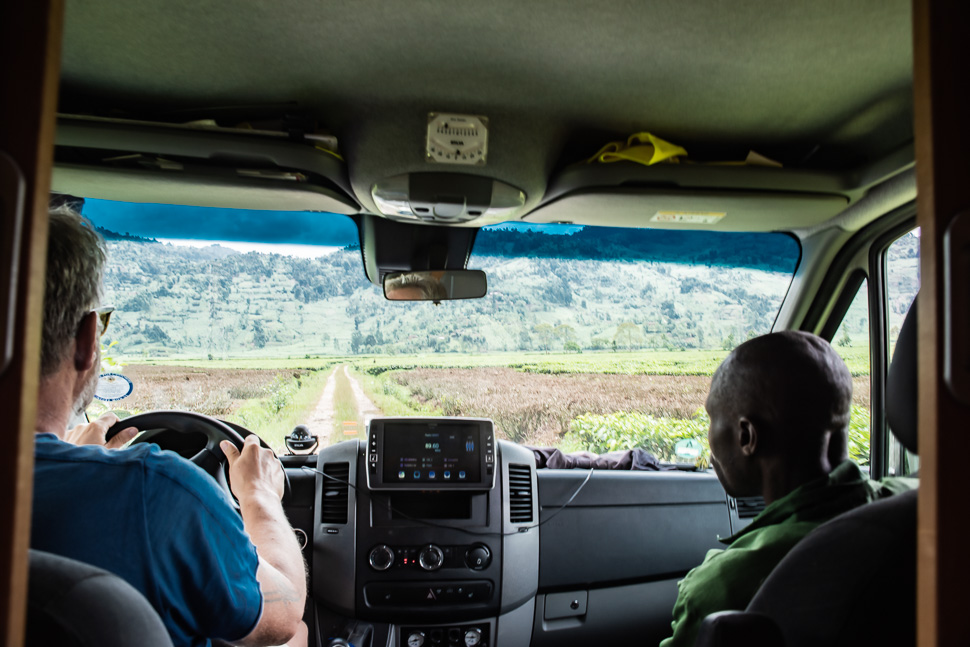
At the Pfunda Tea Farm, in the north of Lake Kivu, we went on a tour to learn more about tea farming and production. The first part, was to visit the tea plantation of the Pfunda Cooperative. 2000 farmers have their farms in this area and sell their harvest to the Pfunda Tea Factory, which is privately owned by an Indian company.
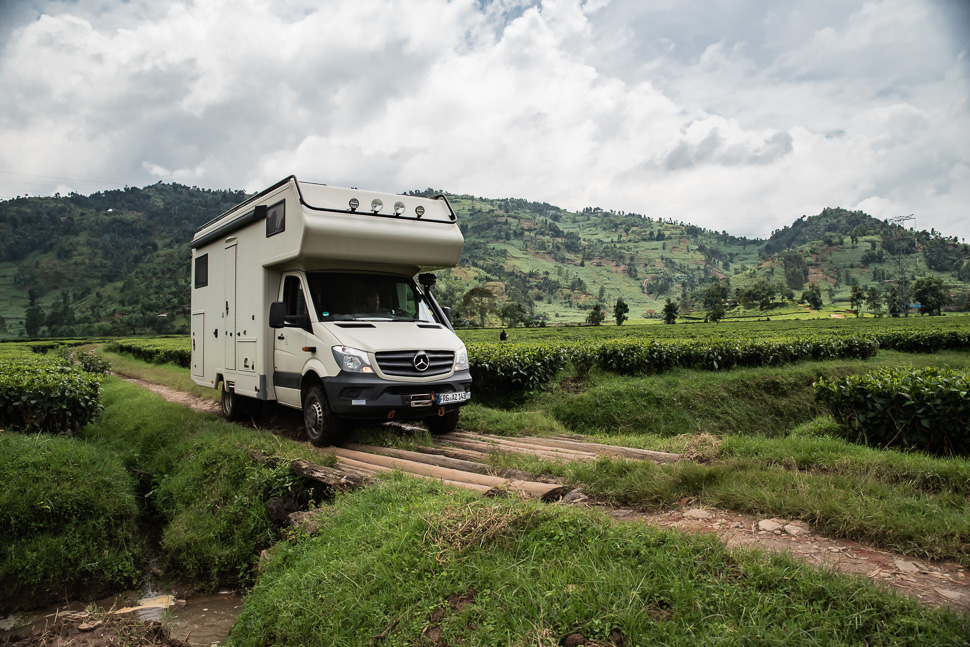
Our guide, who was driving with us to show us they way, led us into the tea plantation and over some bridges, which we had to hope would bear our weight. We were the sensation of the day for the community.
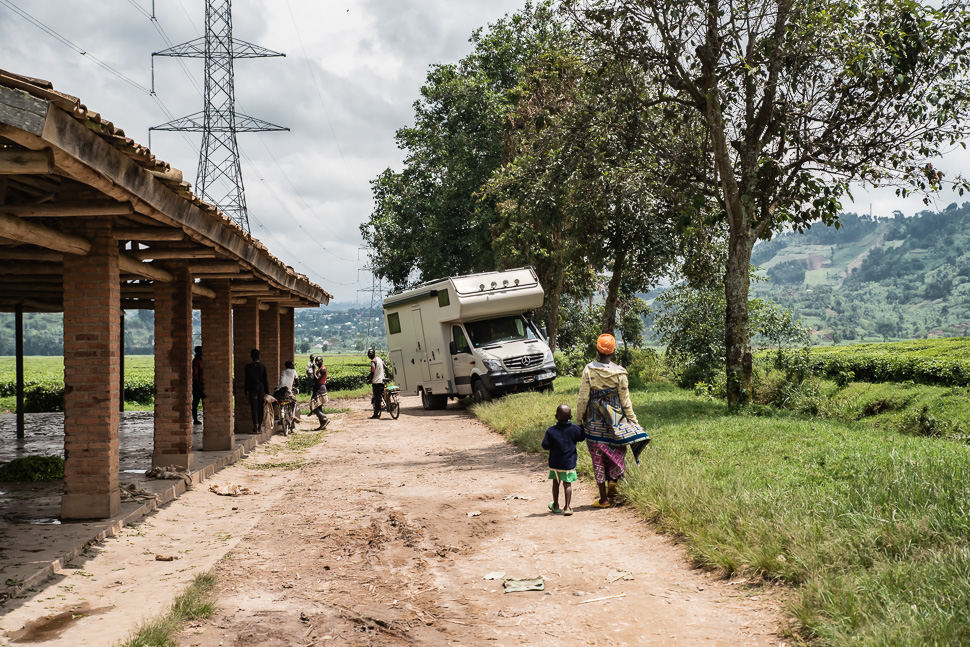
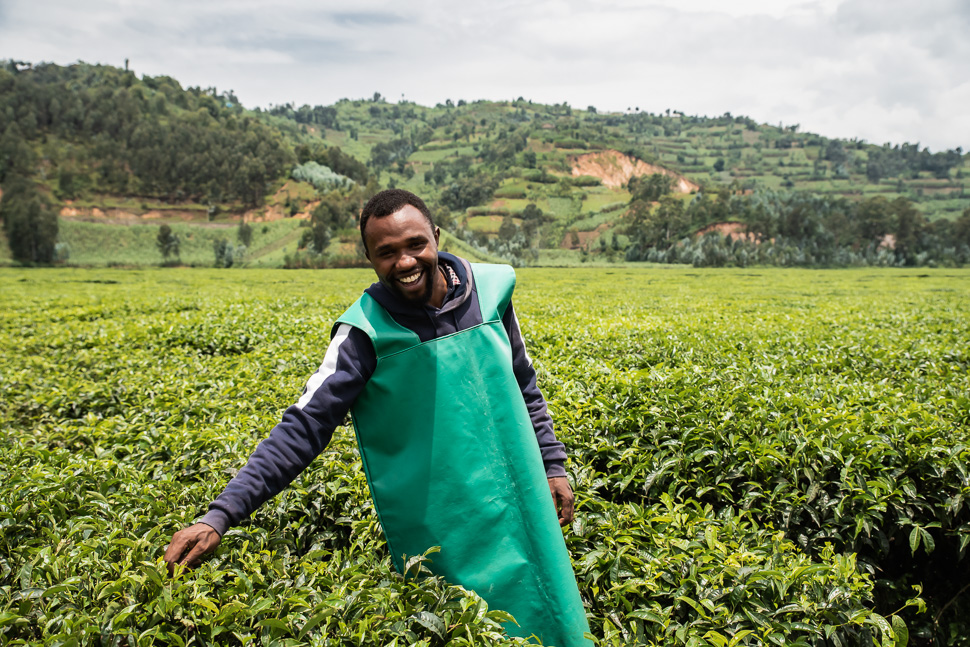
From Nicolas, we got each an apron and a basket and an explanation, how to pick the right tea leaves. The local pickers showed me what to do, so I tried my best, but it took me a lot of time to decide which leaves to pick. They were amused, how long it took me to gather a handful of leaves and throw them into my basket.
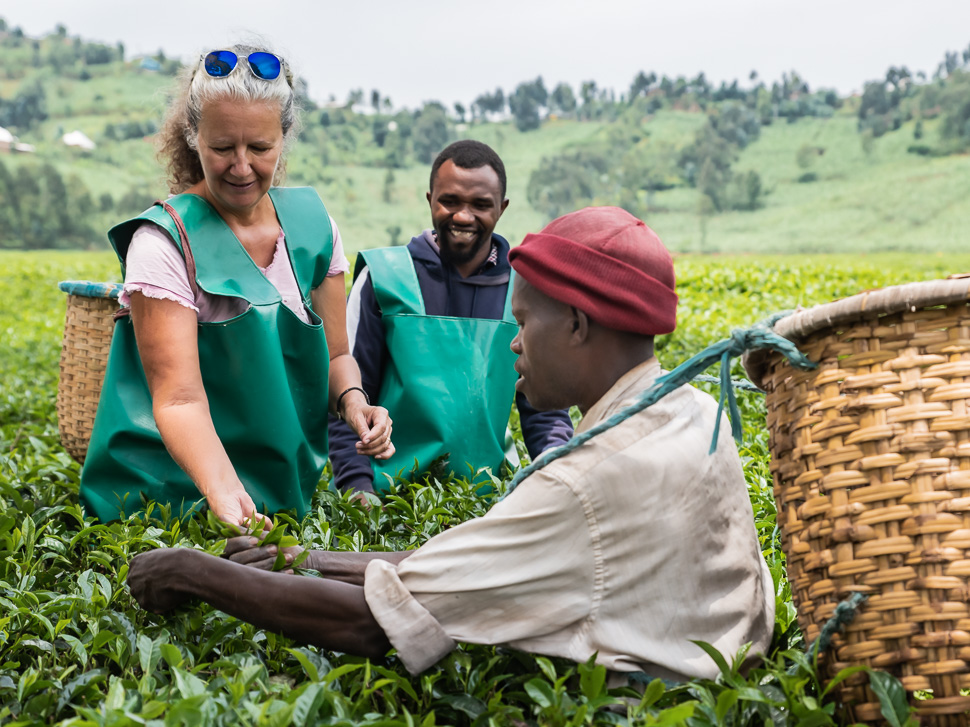
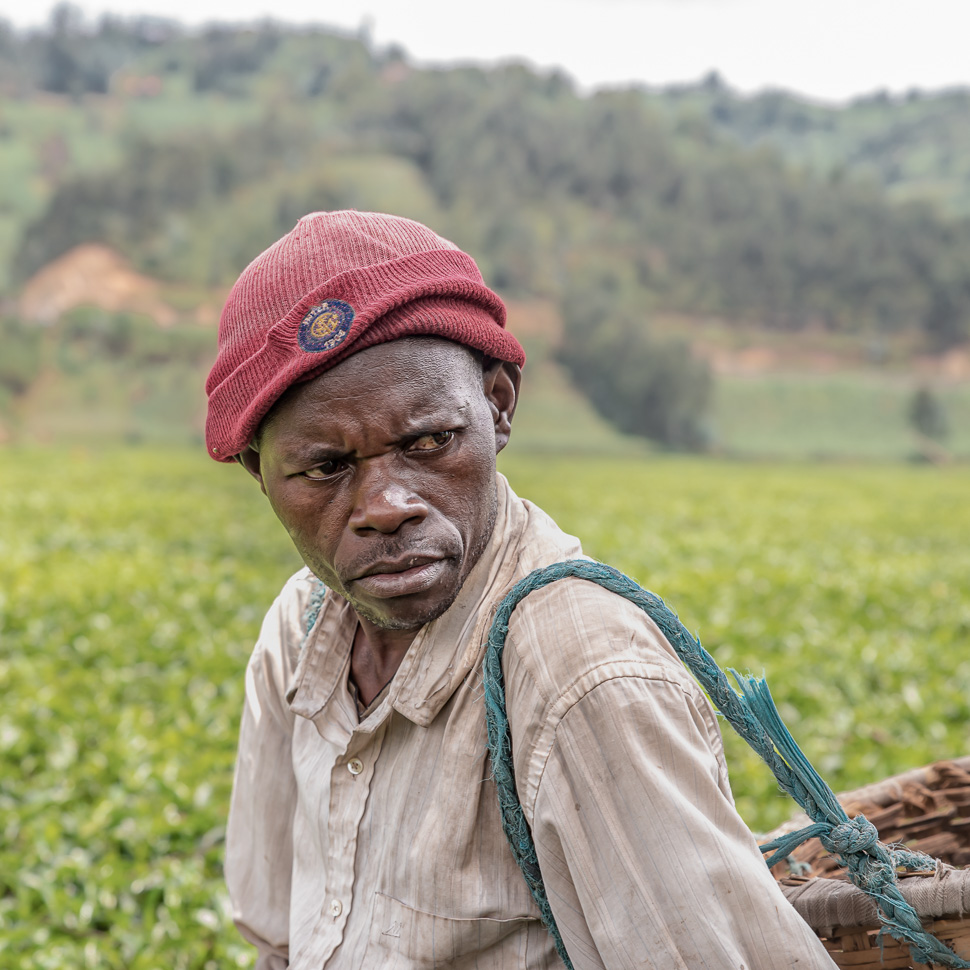
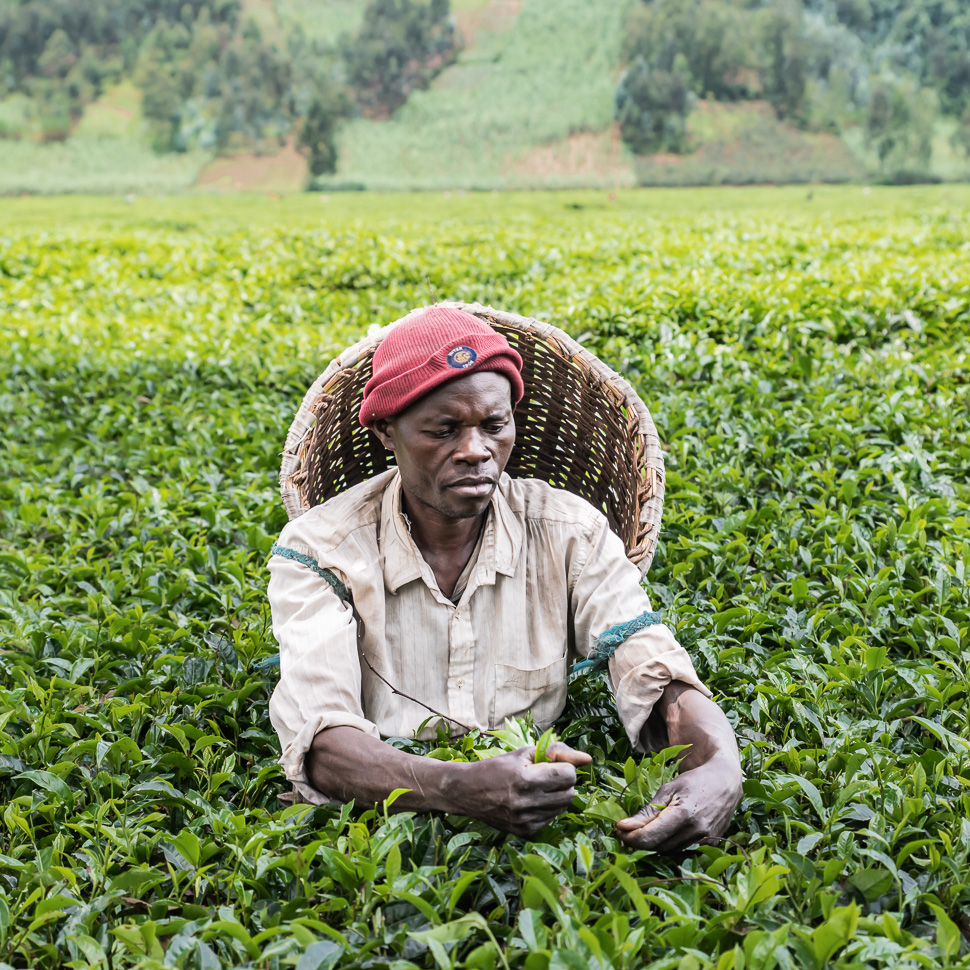
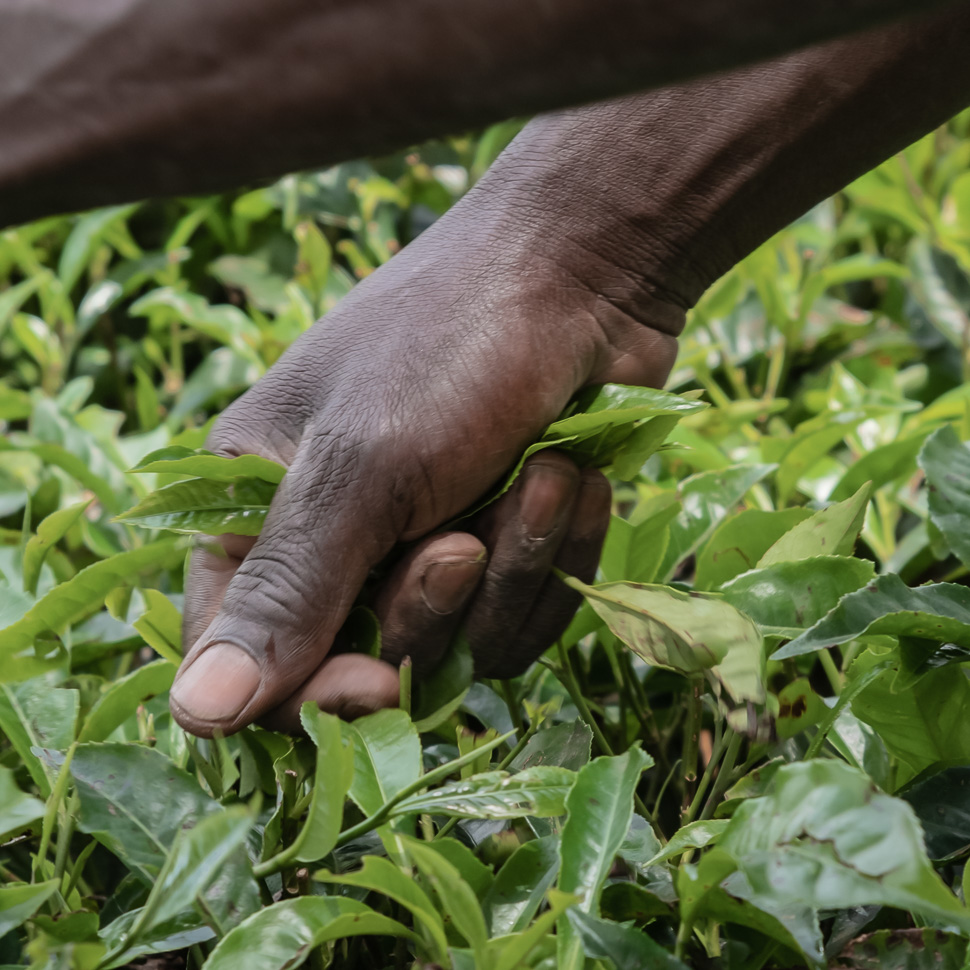
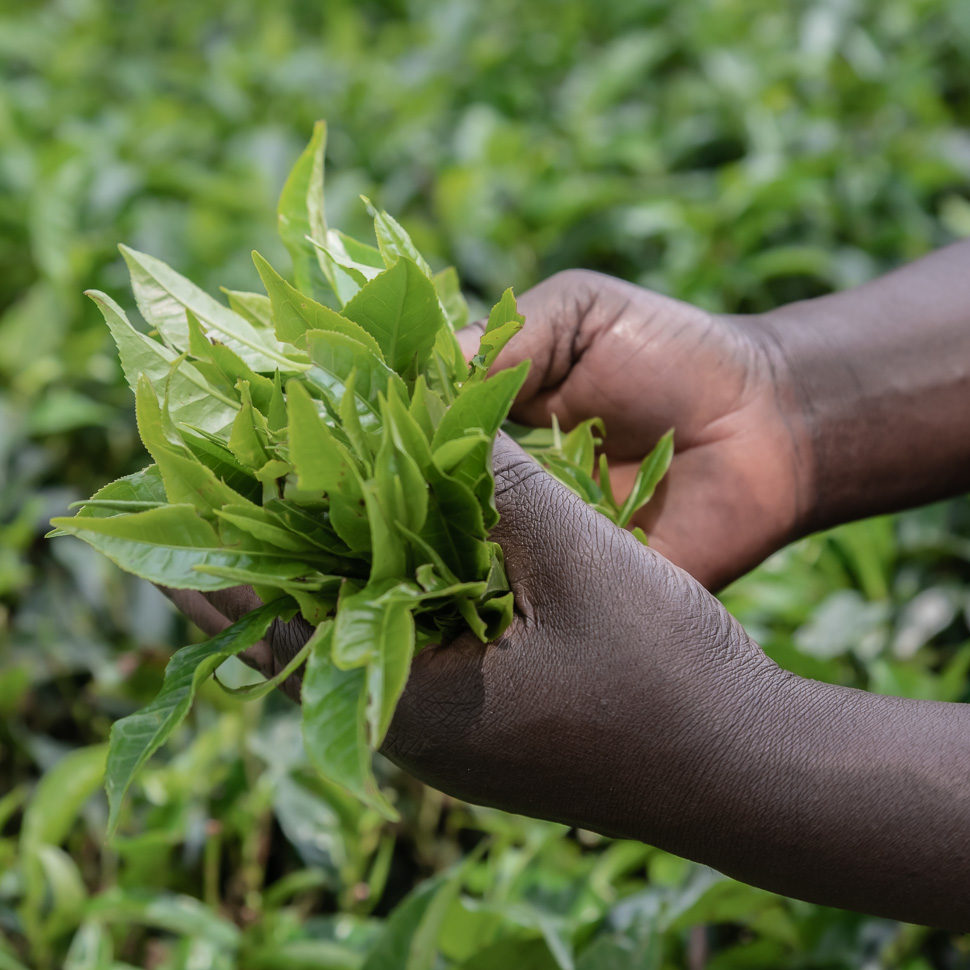
They pick every day except Sunday from 7 – 15h, getting payed per kilo. A picker earns about 2 Euros a day.
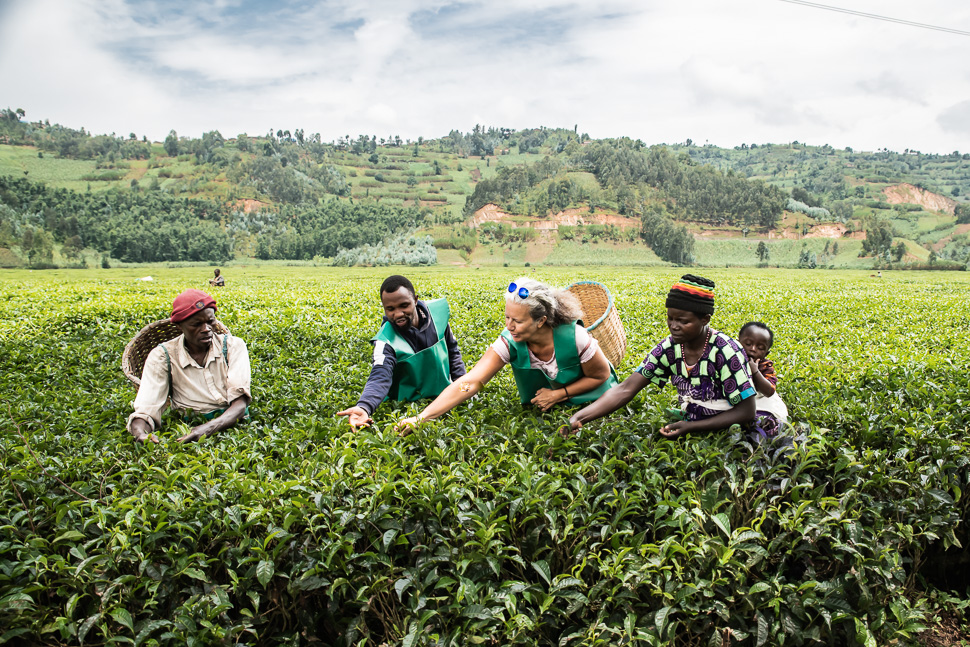
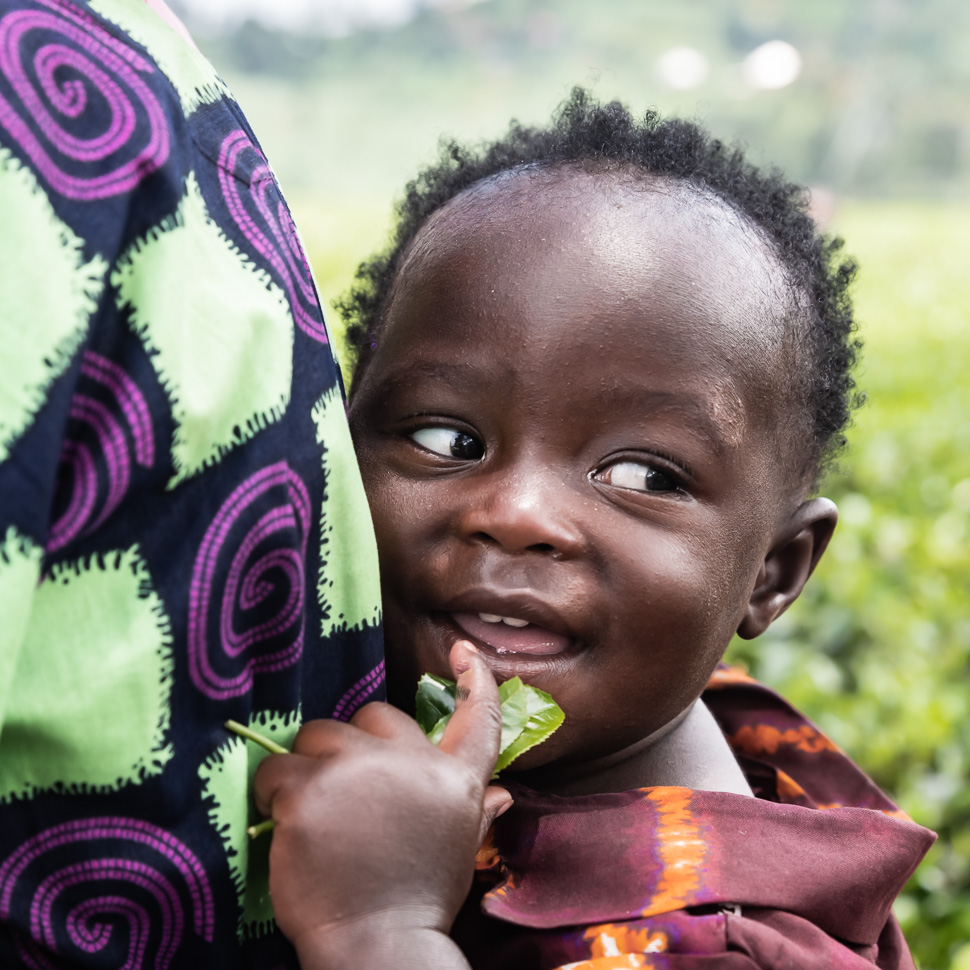
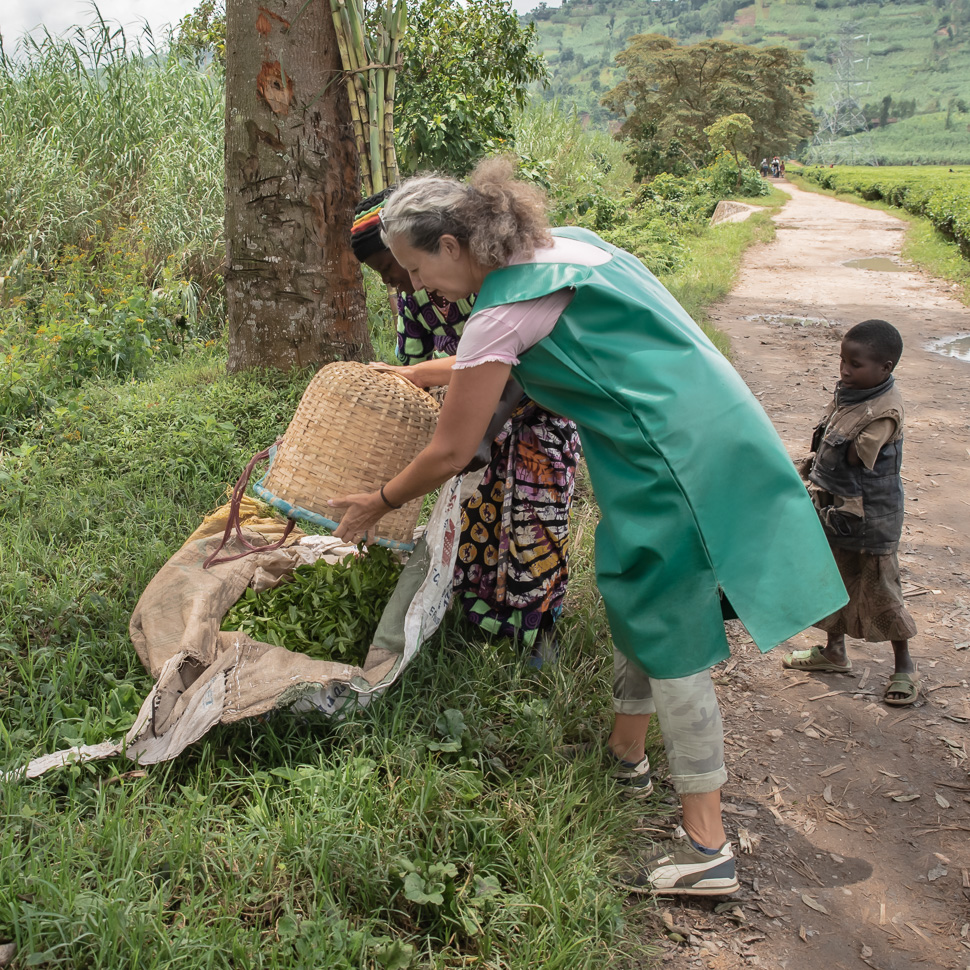
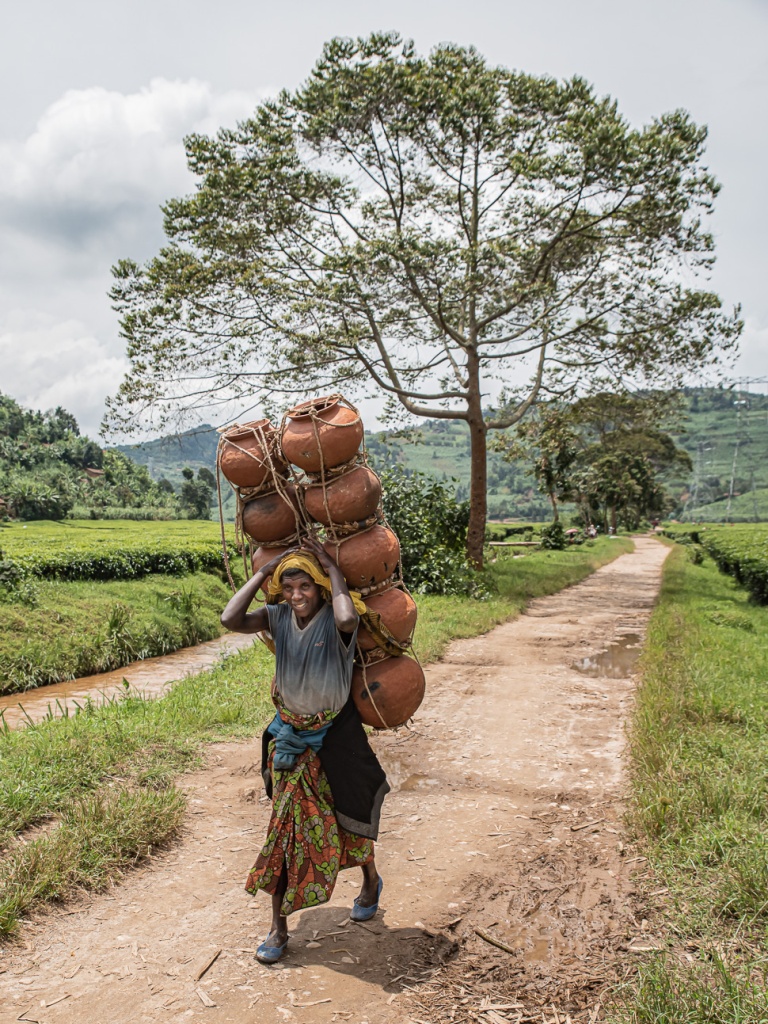
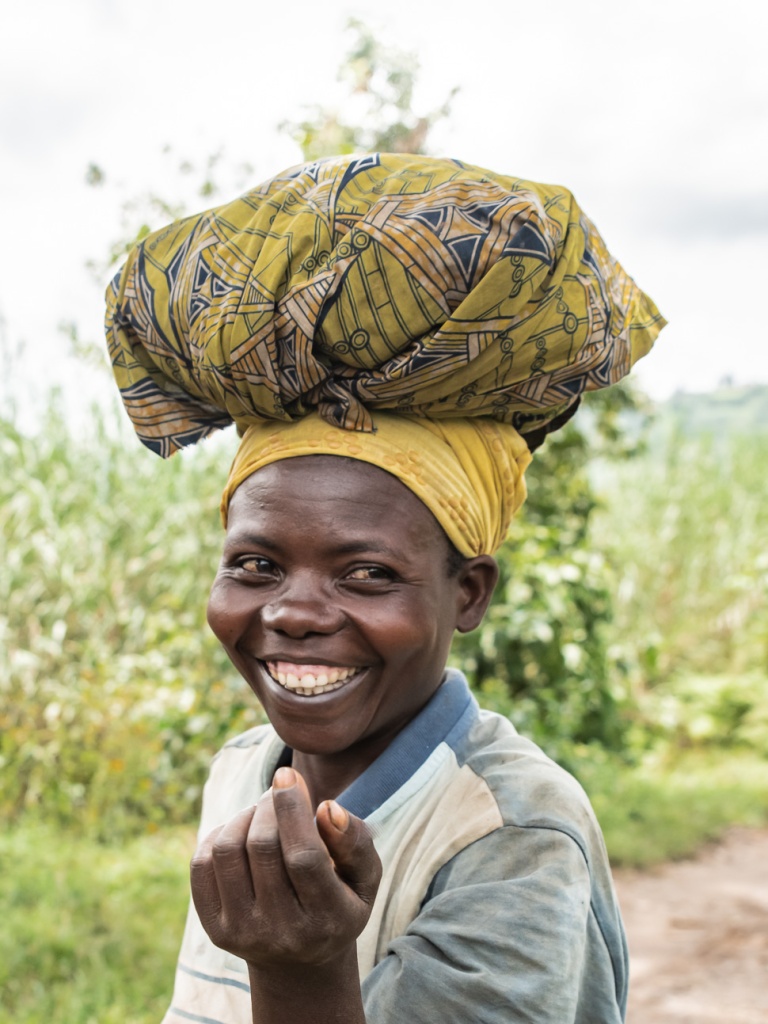
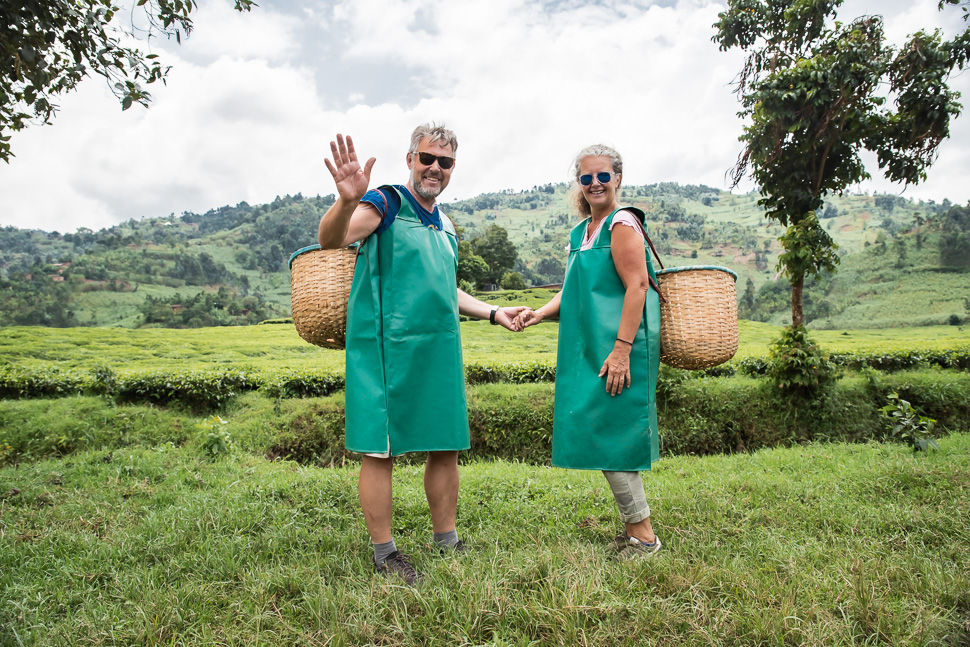
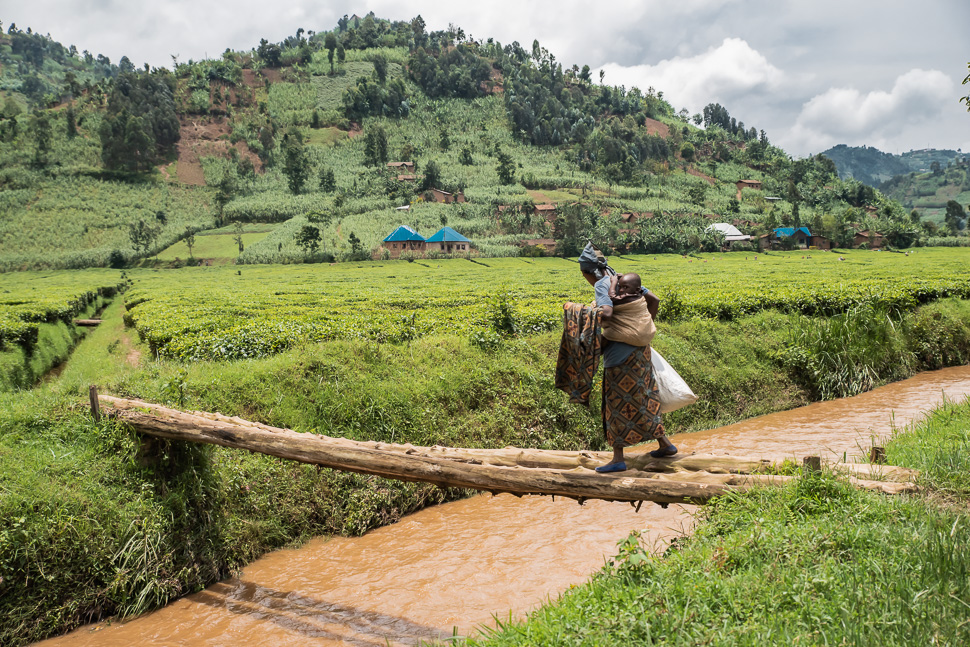
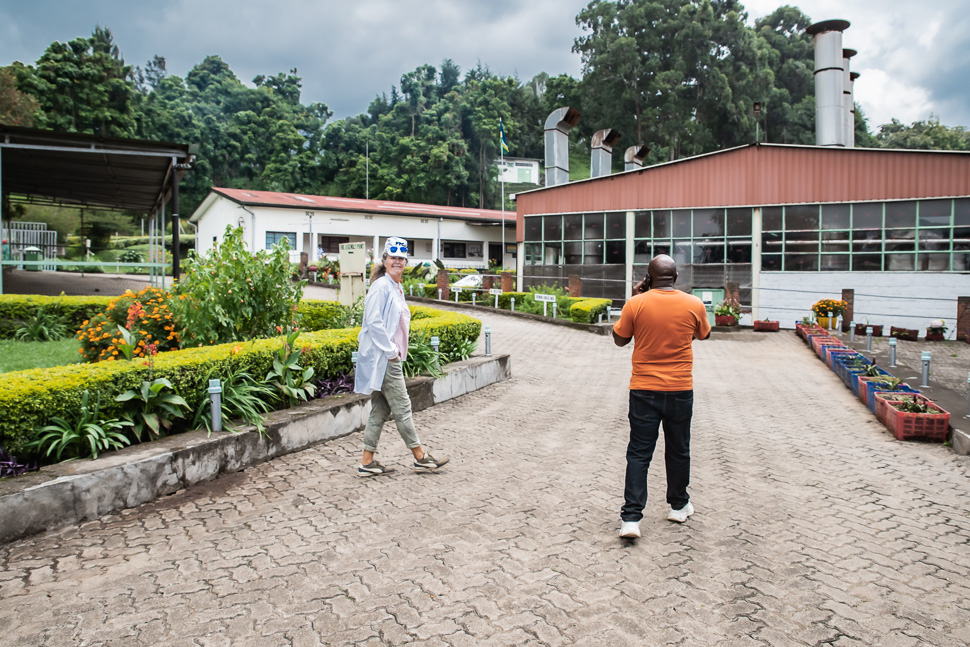
The second part, was the visit to the factory. Here we got even more funny looking costumes and had to fill in a form, that we don’t have any disease.
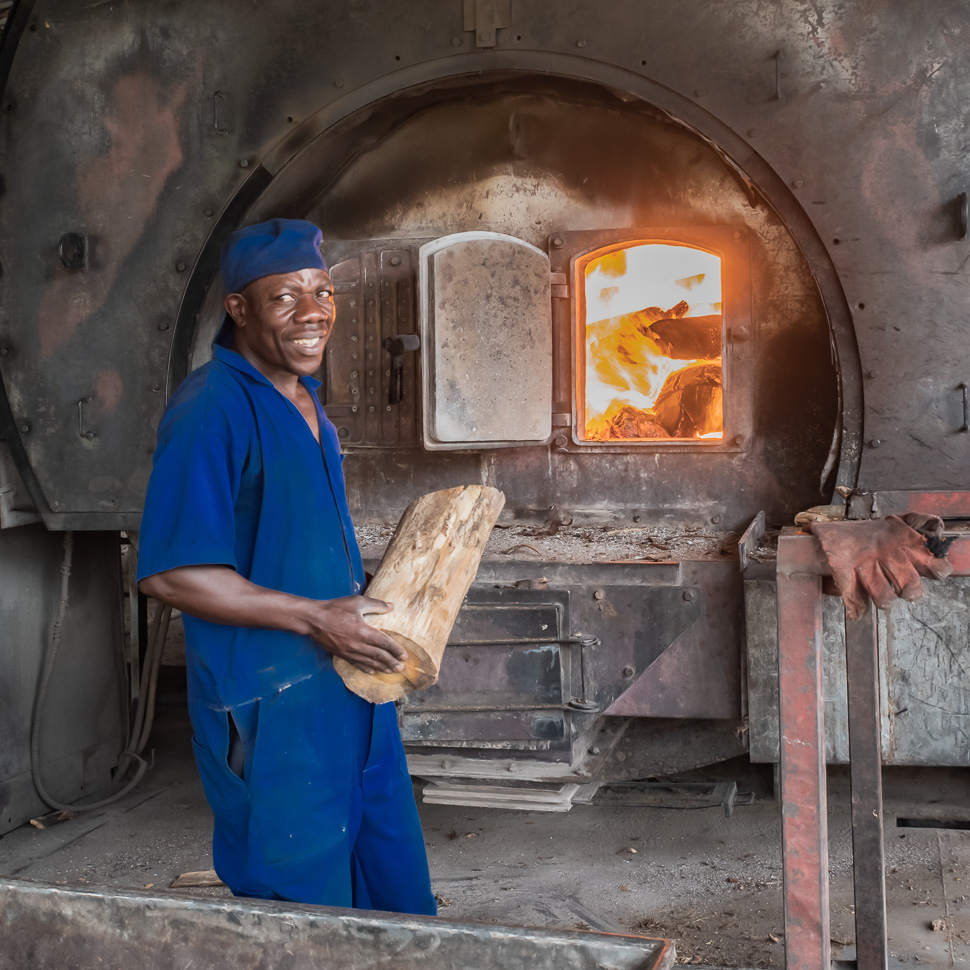
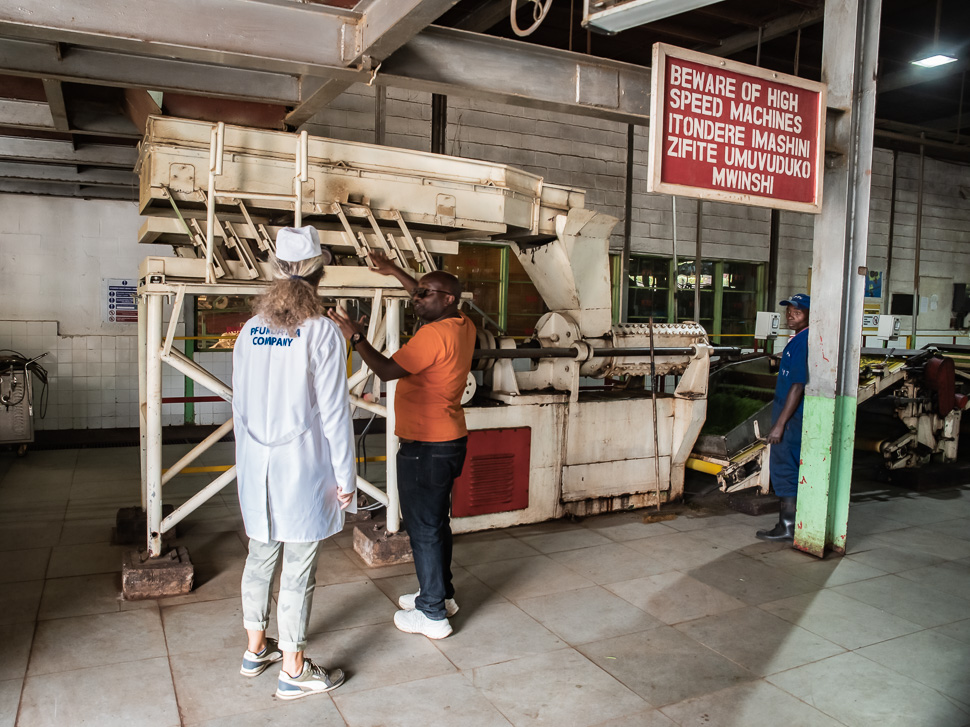
The tea leaves first get dried a little on a grid with some ventilation, then they were cut into a green powder. During about 1h and 45minutes, they tea ferments into black tea, with nothing added. The black powder is then dried, sorted by fineness and packed in 50kg bags for export.
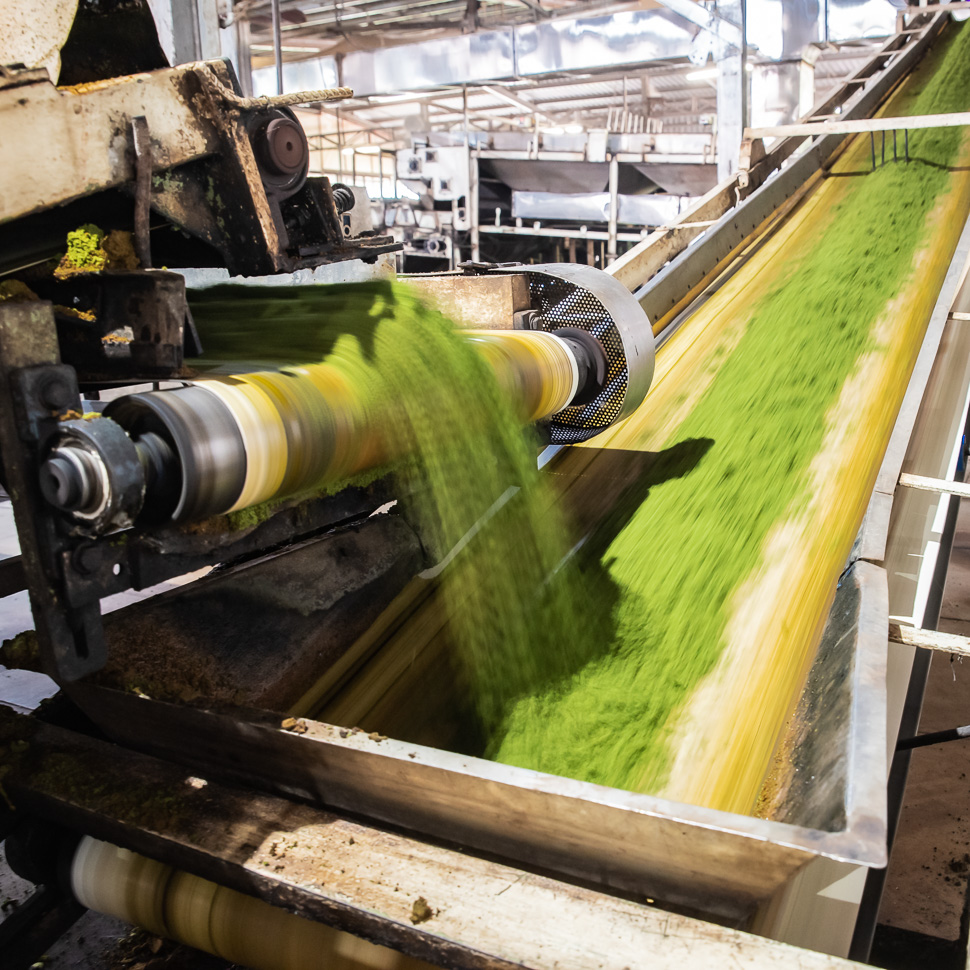
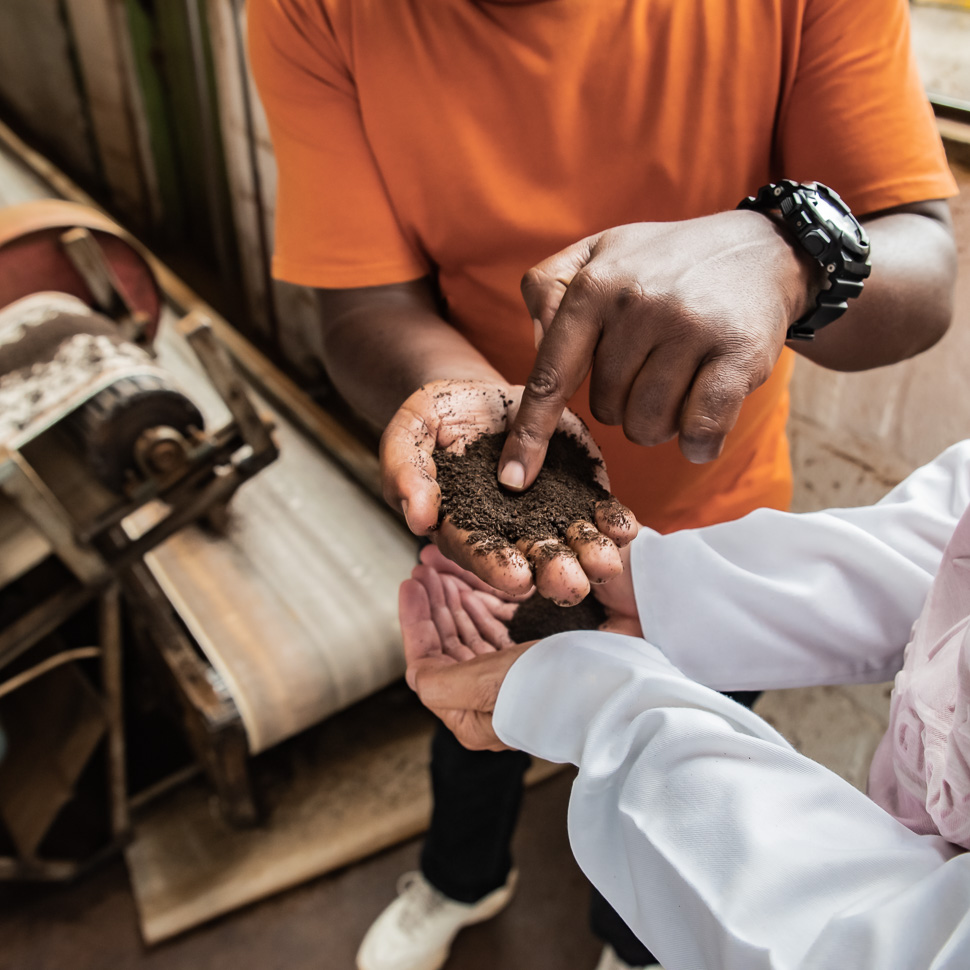
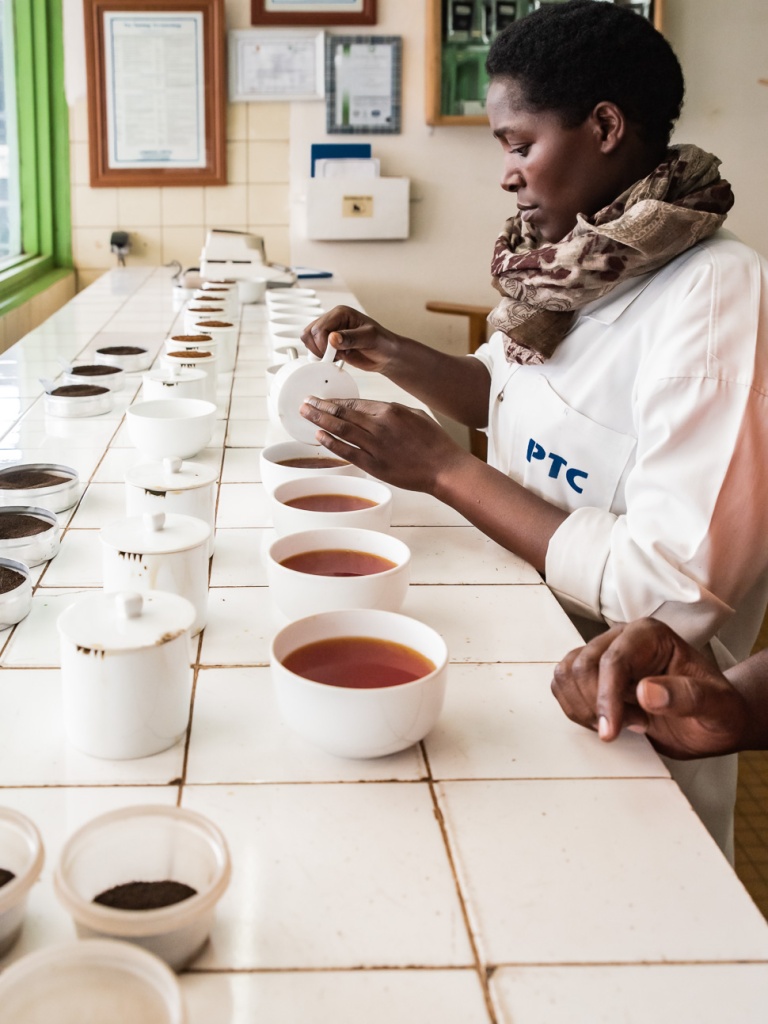
Every hour, the produced tea is tested, so they can make adaptations in the production process if necessary.
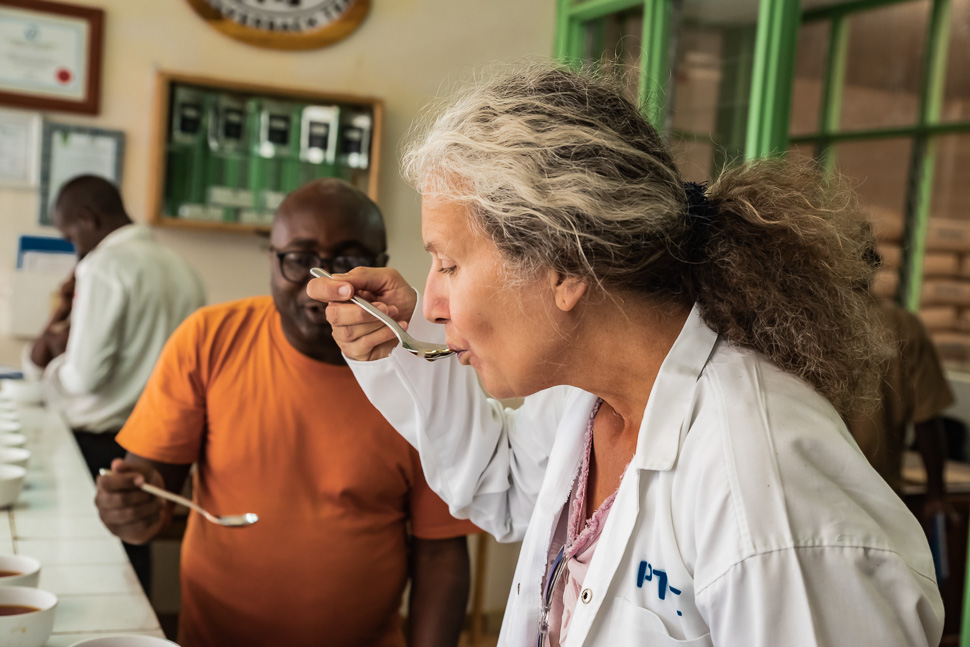
It was great, we could go on this tour of tea production. They were very happy to show us around and explain everything.
We also went to visit the town of Gisenyi, on the nothern shore of Lake Kivu, which lies directly at the border to DR Congo. We found a good place for the night at the Roxy Restaurant directly at the lake. There is a nice sea front, where we walked to the Lake Kivu Serena Hotel for a drink. In the palm trees along the lake we finally saw the fruit bats, we hadn’t seen on Napoleon Island during our boot trip.
We will head now to the volcanos in the very north of Rwanda, where some gorilla families live.
